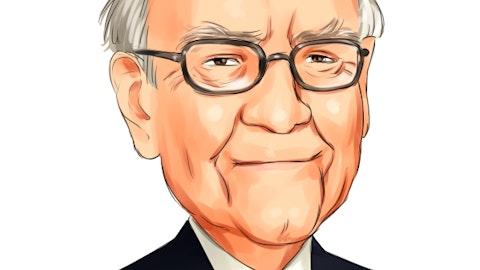
How they fit into Buffett’s strategy
Below is a checklist for choosing companies that should offer steady returns and minimize losses during general economic downturns. Earnings per share figures tend to jump around from quarter to quarter. I used annual EPS figures from the years 2003 and 2012 to calculate average annual EPS growth. Book value per share is less volatile, so I used quarterly figures from periods ending March 2003, and December 2012.
| AstraZeneca | Bristol-Myers Squibb | Eli Lilly | |
|---|---|---|---|
| Return on assets | 12.06% | 5.80% | 12.28% |
| Return on equity | 27.70% | 12.98% | 27.81% |
| Average annual EPS Growth ‘03-’12 | 10.83% | -3.10% | 4.44% |
| Average annual book value per share growth ‘03-’12 | 6.77% | 4.47% | 5.10% |
| Current dividend yield | 8.32% | 3.69% | 3.51% |
| Long term debt | $9.41B | $7.39B | $5.52B |
| TTM net income | $6.30B | $1.96B | $4.09B |
Data source: Company SEC filings and YCharts
Returns on assets are a good quick measurement of how effectively a company is managed. If a pharmaceutical company invests in a shiny new laboratory, its fancypants scientists need to use it to develop some profitable drugs or this number falls. Eli Lilly & Co. (NYSE:LLY)’s 12.28% return on assets is the highest in its industry.
With respect to earnings growth, AstraZeneca plc (ADR) (NYSE:AZN) is the clear leader here. Eli Lilly posted a rare loss of $1.89 per share for the entire year of 2008 but has otherwise been growing at a decent pace. Bristol Myers Squibb Co. (NYSE:BMY) was doing well until 2012. Lately it’s having as much trouble growing earnings as I have spelling “Myers” with only one “e.”
AstraZeneca’s book value growth is outstanding when you consider its high, but odd dividend distributions. The UK based drug major’s dividend chart looks like a saw blade, but has steadily been trending upwards. Both AstraZeneca plc (ADR) (NYSE:AZN)and Eli Lilly & Co. (NYSE:LLY) are clearing enough net income to pay off their long term debt in less than two years. I was surprised to find not one of these pharmaceutical majors among Berkshire Hathaway’s holdings.
In fact, a look at CNBC’s Berkshire Hathaway Inc. (NYSE:BRK.B) portfolio tracker shows that Buffett has sold off nearly all his holdings in major drugmakers over the past year. Currently, GlaxoSmithKline plc (ADR) (NYSE:GSK), and Johnson & Johnson (NYSE:JNJ) are the only pharmaceutical holdings, and they only account for a few crumbs of the Berkshire Hathaway pie.
How these drug majors don’t fit into Buffett’s strategy
Even if you’re relatively new to investing you’ve probably heard the term “economic moat.” Buffett, and any serious long term investor, looks at businesses as castles that are constantly being attacked by competitors. A company’s competitive advantage works like a moat that keeps the competition from eating away at its core business. It also allows a company to charge more for its products, in this case drugs.
Cheap generic drugs are the barbarians constantly storming the castles of these drug majors. Just about the only thing keeping them out are patents, and that economic moat is drying up.

Image source: IMS Institute for Healthcare Informatics – Global Use of Medicines: Outlook Through 2016 PDF file, Adobe Acrobat required
According to the IMS Institute for Healthcare Informatics, global spending on drugs is expected to rise significantly over the next several years. Unfortunately for these drug majors, the market for branded medicines will experience flat to 3% annual growth through 2016. In Europe, austerity programs and healthcare cost-containment initiatives will significantly slow growth. In the US, a record number of expiring patents last year is already having an effect that will be slightly offset by the Affordable Care Act.
The general outlook for the above drug majors isn’t catastrophic, but I wouldn’t recommend buying any of them. If you’re already holding them, now might be a good time to set some stops.
The article Why Buffett Is Just Saying No to These Drug Majors originally appeared on Fool.com and is written by Cory Renauer.
Copyright © 1995 – 2013 The Motley Fool, LLC. All rights reserved. The Motley Fool has a disclosure policy.





